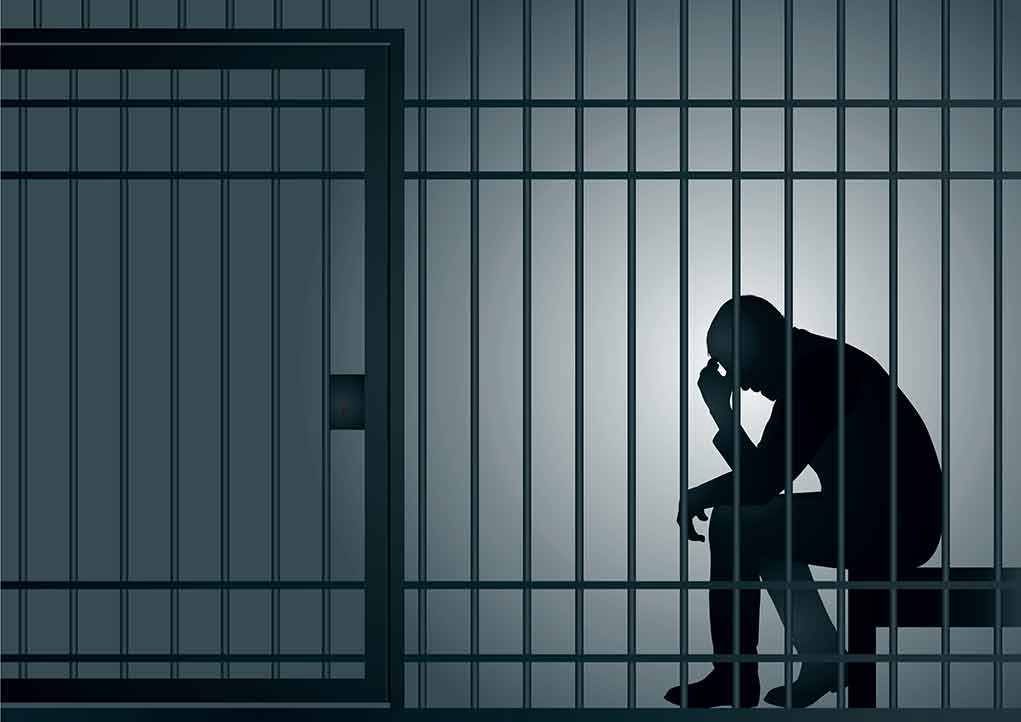
A Wisconsin inmate died of dehydration after prison staff deliberately cut off his water supply, marking the latest in a series of deaths at a facility where negligence and deliberate cruelty appear to be institutional policy.
Key Takeaways
- Donald Maier, a 62-year-old inmate with a serious mental illness, died from dehydration and malnutrition on February 22, 2024, at Waupun Correctional Institution after staff repeatedly shut off water to his cell.
- Jeanette Maier, Donald’s mother, has filed a federal wrongful death lawsuit against the Wisconsin Department of Corrections, former Warden Randall Hepp, and nine other employees.
- Former Warden Hepp’s charges were reduced from a felony to a misdemeanor with only a $500 fine, which the victim’s mother described as a “slap on the wrist.”
- This is the fourth lawsuit filed by relatives of inmates who have died at Waupun since 2023, where at least seven prisoners have died under questionable circumstances.
- The troubled facility faces multiple investigations into staff misconduct, severe understaffing, and allegations of drug trafficking within the prison walls.
Pattern of Neglect Leads to Preventable Death
The death of Donald Maier in February 2024 represents a disturbing example of government incompetence and callous disregard for human life within our prison system. According to the federal lawsuit filed by Maier’s mother, prison staff at Waupun Correctional Institution routinely turned off the water supply to Maier’s cell as punishment when he flooded it, but then critically failed to restore his access to drinking water. This deliberate action directly contributed to his death from dehydration and malnutrition while in solitary confinement, where he was completely dependent on staff for his basic needs.
The lawsuit reveals that Maier, who was designated as having a serious mental illness, did not receive his medication while at Waupun. Instead of providing appropriate psychiatric care, prison staff responded to his mental health crises with punitive measures that ultimately proved fatal. The complaint details how staff failed to document water shut-offs, did not inform Maier when water was restored, and neglected to provide him with alternative water sources – actions that amount to cruel and unusual punishment prohibited by the Constitution.
Justice Denied as Officials Escape Serious Consequences
In a shocking example of how government officials often escape meaningful accountability, former Warden Randall Hepp faced minimal consequences for his role in Maier’s death. Initially charged with felony misconduct, Hepp’s charge was reduced to a misdemeanor resulting in merely a $500 fine. This paltry punishment for overseeing a system where an inmate died from simple dehydration shows the two-tiered justice system at work – harsh penalties for ordinary citizens while bureaucrats face little more than administrative slaps on the wrist.
“slap on the wrist,” said Jeanette Maier, mother of the deceased inmate, when describing the $500 fine imposed on former Warden Hepp for his role in her son’s death.
The lawsuit names multiple defendants, including Wisconsin Department of Corrections Secretary Jared Hoy, former Warden Randall Hepp, and several staff members who allegedly participated in the negligence that led to Maier’s death. It claims that Hepp was aware of serious issues at the facility, including understaffing and lack of proper training, which created substantial risks to inmates. Despite this knowledge, the leadership failed to implement necessary changes that could have prevented this tragedy.
Systemic Failure at Wisconsin’s Oldest Maximum Security Prison
Waupun Correctional Institution, Wisconsin’s oldest maximum security prison operating since 1854, has become a symbol of government failure and mismanagement. Since 2023, at least seven inmates have died at the facility, triggering multiple lawsuits and investigations. The prison has been plagued by severe staff shortages forcing employees to work exhausting overtime shifts, creating conditions where resentment and burnout contribute to the mistreatment of inmates.
“The mother of an inmate who died of dehydration and malnutrition at Wisconsin’s oldest maximum security prison last year has filed a federal lawsuit, marking the fourth action brought by relatives of inmates who have died at the troubled institution since 2023,” reported the Associated Press.
Further compounding the problems at Waupun are allegations of internal drug trafficking, with federal investigators probing smuggling operations that have already resulted in at least one guilty plea from a former employee. A federal class-action lawsuit alleging inhumane conditions at the facility was filed but later dropped in August 2024 due to procedural issues. The Department of Corrections has shown little transparency in addressing these serious concerns, with spokesperson Kevin Hoffman declining to comment on pending litigation.
Taxpayer-Funded Negligence Continues Unchecked
This pattern of neglect, cruelty, and mismanagement at Waupun Correctional Institution perfectly illustrates how bloated government bureaucracies fail at even their most basic responsibilities while taxpayers foot the bill. Despite clear evidence of systemic problems and multiple deaths, meaningful reforms have not been implemented. Instead, officials like former Warden Hepp receive token punishments while the families of victims are left to seek justice through civil litigation that will likely cost taxpayers millions in settlements.
The tragedy of Donald Maier’s completely preventable death highlights the urgent need for genuine prison reform and accountability within our corrections system. While prisoners have been convicted of crimes, the Constitution still protects them from cruel and unusual punishment. The deliberate withholding of water leading to death by dehydration represents a level of government cruelty that should concern every American who values justice and human dignity, regardless of one’s views on crime and punishment.




